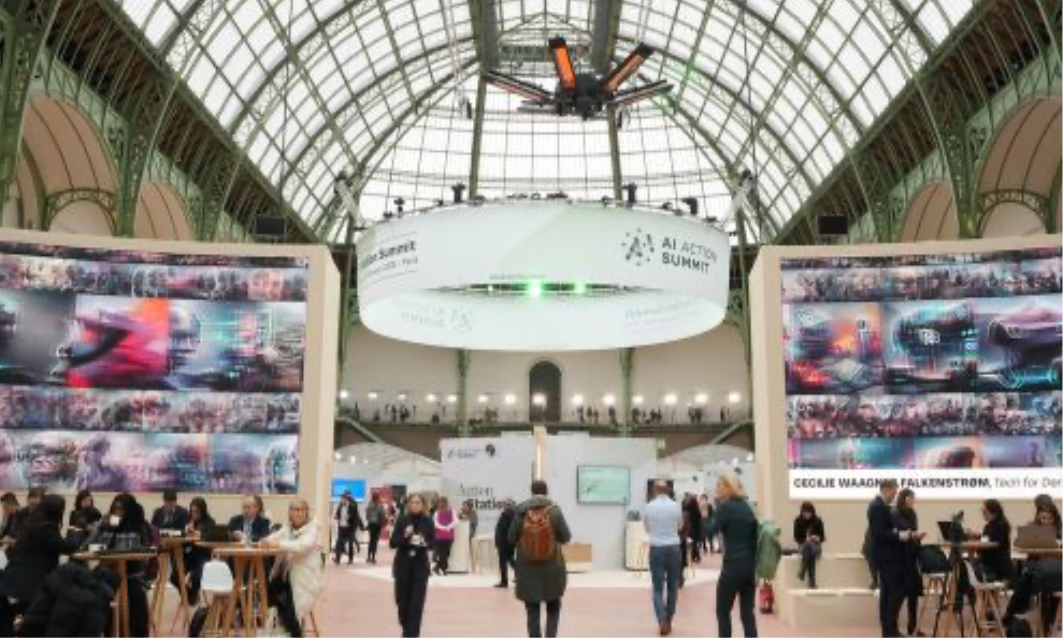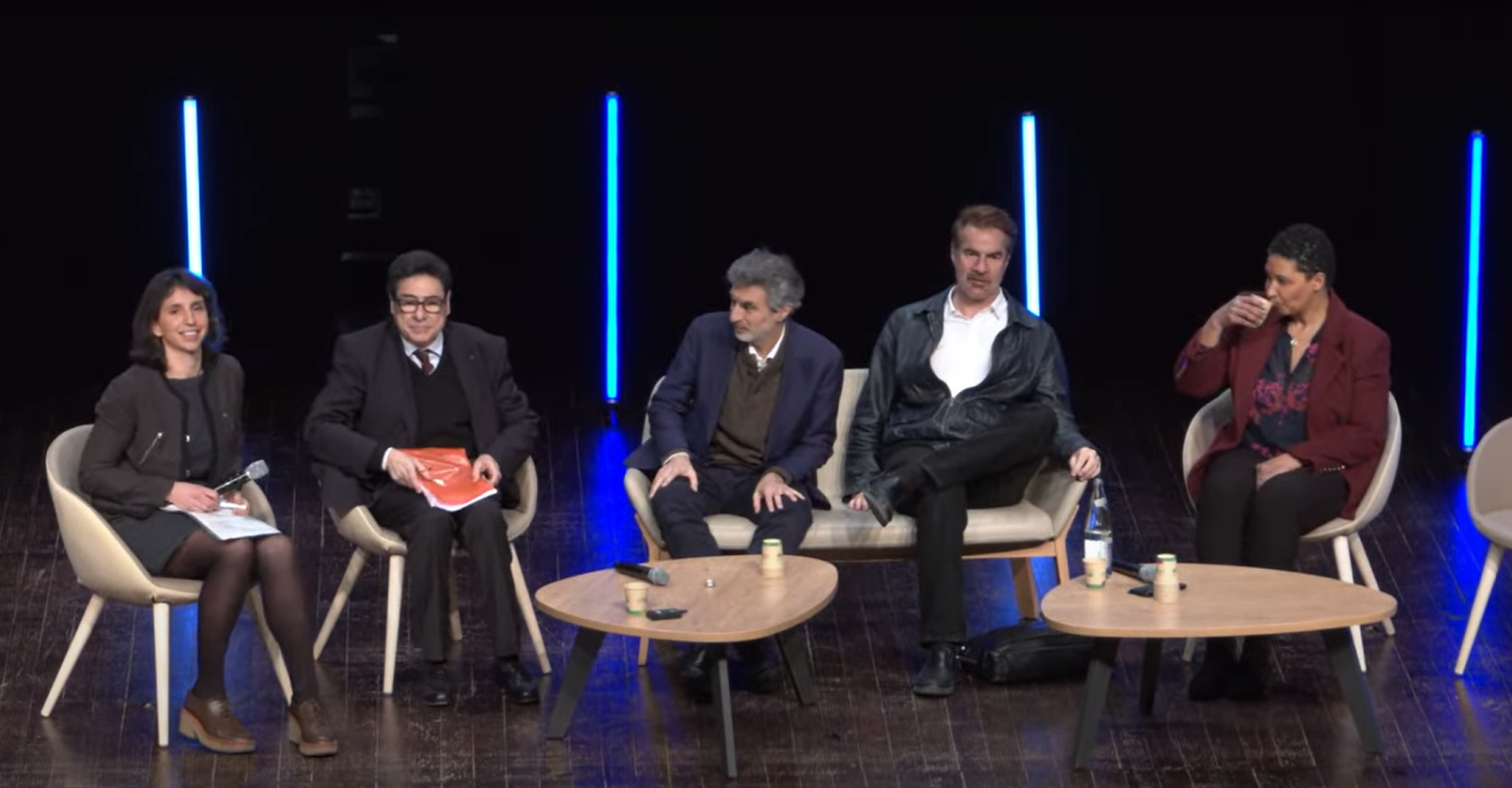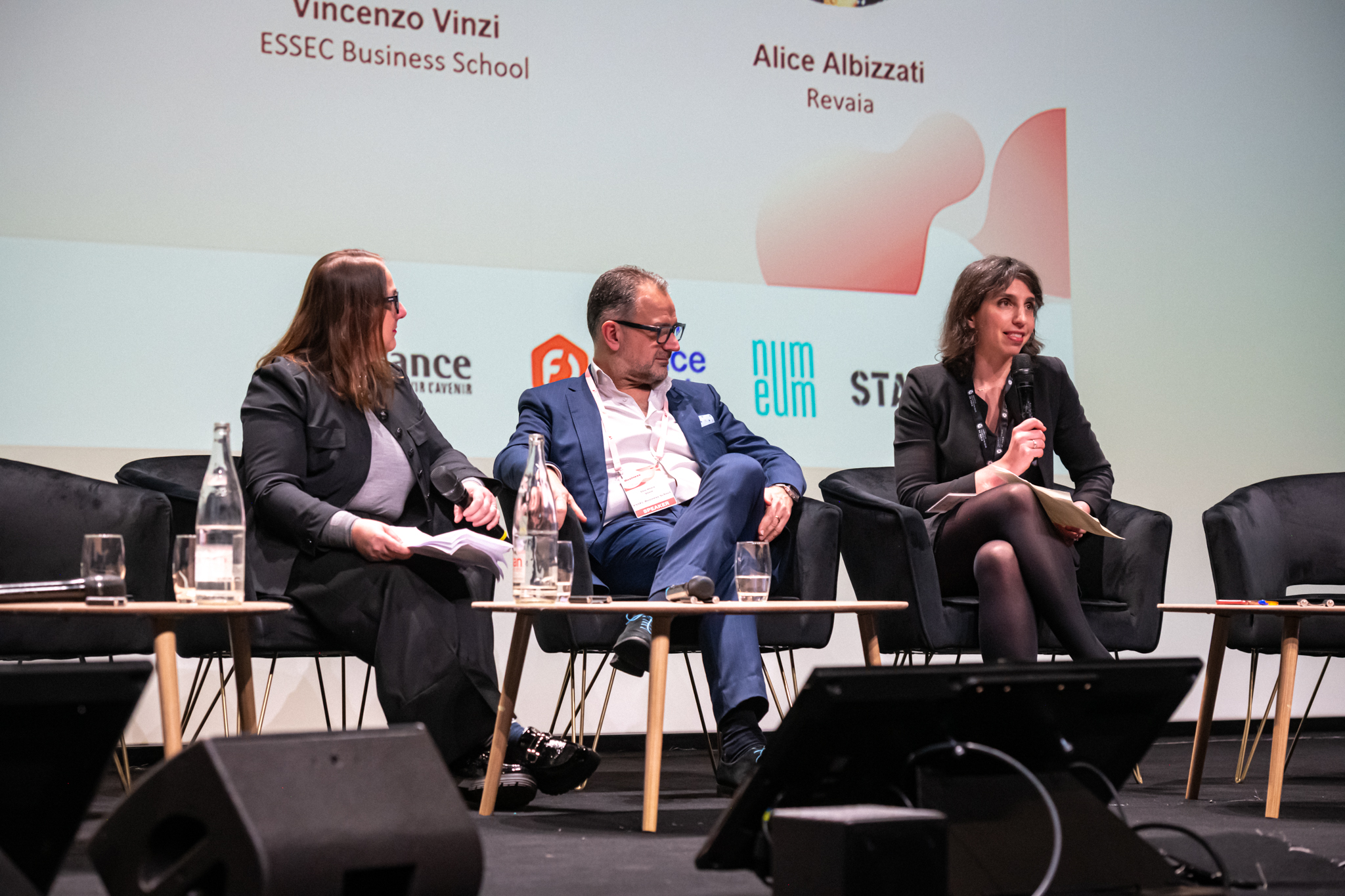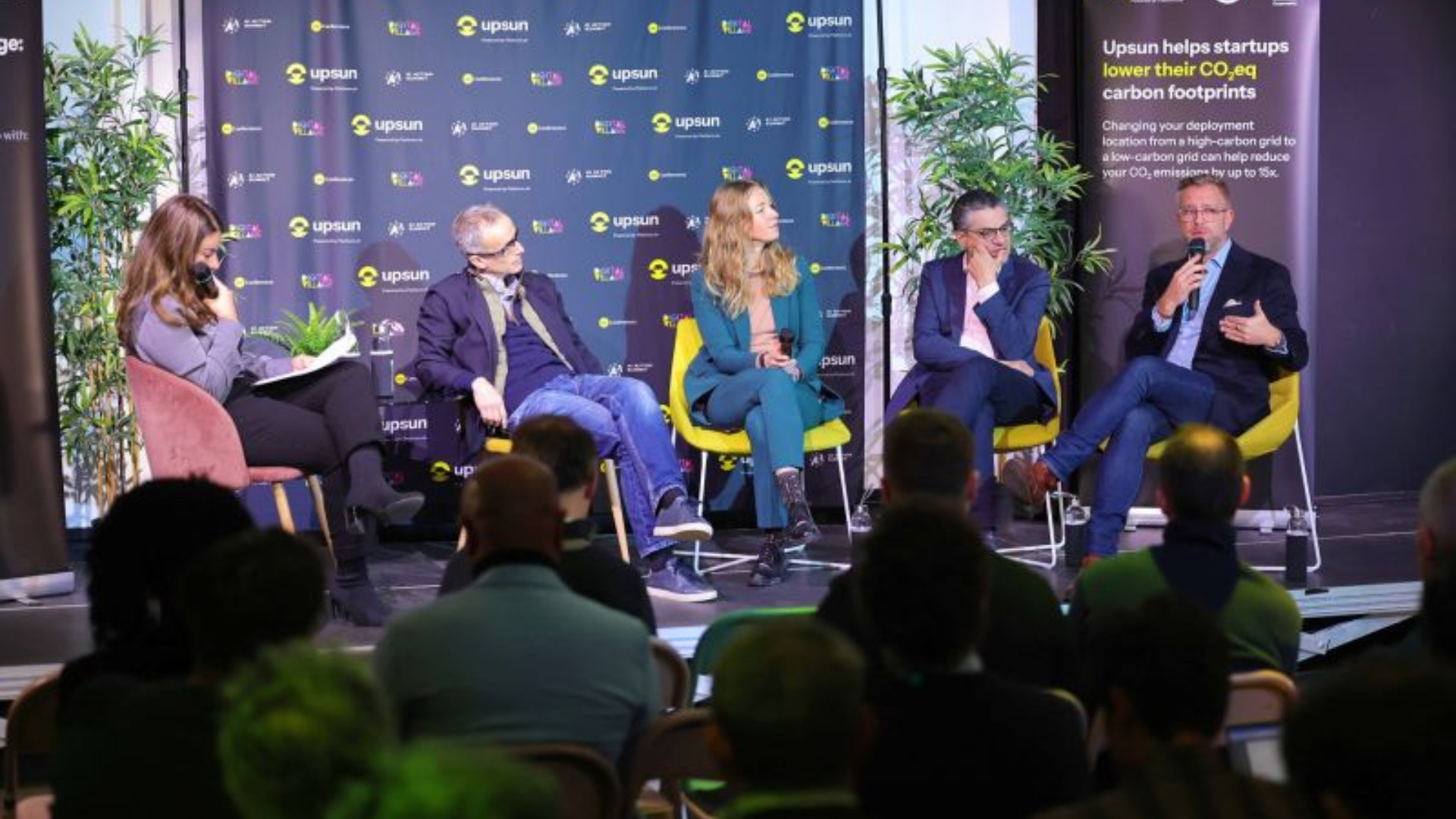
European Ambitions Take Center Stage: Insights from the Paris AI Summit
The AI Summit for Action in Paris was a truly global gathering, attracting participants from all over the world - notably from the U.S. and Asia.
The Summit brought together top-tier entrepreneurs, researchers, investors, and policymakers, reinforcing France and Europe’s position as key players in shaping the future of AI.
There was a strong sense of national pride, reminiscent of the Olympic Games, with France hosting a moment of global significance—and Paris once again in the international spotlight. The massive event concluded with a distinct sense of optimism that this momentum will translate into a lasting impact on the European AI ecosystem.
The Revaia team was honored to participate in the Summit and the related events. Founding partner Alice Albizzati moderated a panel discussion at the AI, Science, and Society Conference at the Institut Polytechnique de Paris called, “From Building AI to Living in a World Built on AI.” She also led the discussion at the Summit’s Business Day, “What makes Europe attractive for AI startups and talents?”

Alice Albizzati, Philippe Aghion, Yoshua Bengio, Erik Brynjolfsson, Danielle Allen
Sustainability Manager Anaïs Blarel was a featured participant on a breakfast panel hosted by Platform.sh and Upsun called “The Sustainable Edge: Building VD-ready AI companies.” Many other Revaia team members were attending and observing the Summit and the events leading up to it.
The conversations we heard made the stakes clear: We need to ensure that AI serves humanity rather than the other way around. France and Europe have an opportunity to lead by demonstrating that innovation and progress can co-exist with social responsibility and environmental sustainability.
These are some of the most important themes that emerged throughout the week.
Funding
On the financing side of the equation, the news was encouraging.
→ A €109 billion investment plan announced by President Macron underscores the ambition and commitment to position France as a global leader in AI.
→ €10bn from Bpifrance to boost French AI startups.
→ A €200bn pledge by the EU to invest in artificial intelligence to ensure Europe remains competitive with the U.S. and China.
While the numbers seem huge, we must also recognize that these represent down payments on Europe’s AI future.
One of the most striking takeaways from the summit was how AI now involves such a wide range of stakeholders. VCs are just one link in a broader value chain that notably includes corporates, researchers, policymakers, startups, and growth investors. The collective effort to structure and reinforce Europe’s AI ecosystem is well underway, with each actor playing a role in ensuring long-term success.
For instance, AI has become a core driver of industrial optimization," particularly in the manufacturing and energy sectors. Partnerships between established players like Dassault and new technology providers demonstrate the importance of combining scientific expertise with computing power.
International investors are increasingly recognizing Europe’s AI potential and are eager to invest. At the same time, many European startups are prioritizing product excellence over national identity in their global expansion strategies, reflecting how customers focus on performance rather than sovereignty.
This dynamic presents both opportunities and challenges for European AI companies scaling internationally.
European Strengths and Challenges
During Alice’s Business Day panel on Europe's attractiveness for AI talent and startups, the speakers highlighted Europe's advantages in the global AI race.

Tina Rosario, Vincenzo Vinzi, Alice Albizzati
Tina Rosario, leading SAP's data and analytics practice in Europe, emphasized the region's strong educational foundation and culture of innovation: "Europe is the second largest market for AI worldwide, a very important market, a growing market." She particularly praised the ecosystem of innovation hubs and startup accelerators, citing examples like Station F in Paris where the Business Day event was held.
ESSEC's President Vincenzo Vinzi identified key areas requiring attention. "We should not do with talents the same mistake that we've made with industries by relocating them," he warned, emphasizing the importance of retaining AI talent within Europe.
Vinzi called for more programs focused on talent development and retention. He also proposed better integration between educational systems and industry. "We need to respond to new demands,” he said. “We must reduce the lag between the time of innovation, which is very fast, and classically, the time of acquiring knowledge."
The Sustainability Imperative
AI has significant potential to address environmental challenges, but its development must be intentionally directed toward sustainability goals rather than leaving it to market forces alone.
The current trends certainly warrant concern. Data center electricity consumption could double by 2026. AI infrastructure could consume six times more water than Denmark. The environmental footprint of AI is already massive, even in the early adoption stages. It’s clear that if we don't address these risks now, the AI boom will accelerate the climate crisis.
In this respect, there were several important initiatives announced during the Summit. Perhaps the most significant was the signing of a joint statement on Inclusive and Sustainable Artificial Intelligence for People and the Planet by representatives of 64 countries. While there can be reasonable debates about whether there is enough attention on this topic, we can also acknowledge that this was the first time issues related to AI and energy consumption were addressed directly at such a large global gathering.
These efforts were bolstered at the Summit by the creation of the Coalition for Sustainable AI. Announced at the Ministry of Ecological Transition, the Coalition is a global initiative that unites a diverse group of stakeholders—including governments, tech companies, research institutions, and non-governmental organizations—to align AI development with environmental sustainability goals. The coalition's mission is twofold: to mitigate the environmental footprint of AI technologies and to leverage AI in addressing broader ecological challenges such as climate change, pollution reduction, and biodiversity preservation.

Nessrine Berrama, Jean-Baptiste Rudelle, Anaïs Blarel, Reza Malekzadeh, Guillaume Moigneu
Beyond that, there were some welcome technical developments. The AI Energy Score is an initiative co-led by Boris Gamazaychikov of Salesforce and Dr. Sasha Luccioni of Hugging Face, aiming to bring transparency to the energy consumption of AI models. This project provides a standardized framework for measuring and comparing the energy efficiency of AI models across various tasks. It features a public leaderboard evaluating 166 commonly used models on tasks such as text and image generation, along with a 1- to 5-star rating system to guide users toward more sustainable AI choices. The initiative encourages AI developers to disclose energy efficiency data, promoting informed decisions and fostering a more transparent AI ecosystem.
In addition, there was the Frugal AI Challenge, a collaborative initiative by Data For Good and Hugging Face. Launched in January 2025 in partnership with the Summit, the project aims to promote the development of energy-efficient AI models that effectively address pressing climate issues. The three winners were announced at the Summit: Detecting Climate Disinformation, Classifying Regions at Risk of Wildfires, and Detecting Illegal Deforestation: Participants analyze bio-acoustic data recorded in forested areas to detect sounds indicative of unauthorized logging activities, contributing to biodiversity preservation.
These are important examples of how AI can support environmental goals through energy grid optimization, advanced climate risk modeling, environmental monitoring systems, climate prediction capabilities, energy consumption reduction in data centers, and predictive maintenance to reduce waste.
These collective efforts led to some key recommendations, including the need to make sustainability a non-negotiable aspect of AI development, prioritizing essential applications over non-essential ones, the need for comprehensive regulatory frameworks, transparency in AI's environmental impact, and the development of standards for sustainable AI practices.
The tools to build climate-conscious AI exist. Now it's time to make sustainability a non-negotiable in AI development.
The Human Impact
It’s important to note that the joint statement also emphasized the word “inclusive.”
The signatories agreed to create a network of Observatories to monitor AI’s “implications for workplaces, training, and education and to use AI to foster productivity, skill development, quality and working conditions and social dialogue.” This recognition is timely and essential for addressing public anxiety that might arise should AI be perceived as a destructive force that is widening inequality.
At Alice’s panel discussion at Institut Polytechnique de Paris, experts explored how AI is fundamentally reshaping society. Erik Brynjolfsson, from Stanford's Digital Economy Lab, emphasized that we're "entering uncharted territory" where AI capabilities are expanding rapidly across both cognitive and physical tasks.
However, he cautioned that the biggest challenge lies not in the technology itself, but in its distribution of power: "When we no longer have the labor power that gives us bargaining power...whoever controls the technology that creates this value, hopefully, they'll be benevolent."
Public-Private Dynamics
One of the key themes was finding the right balance between the role of governments and the private sector.
There is growing pressure to reduce regulation for fear of falling behind in the AI race. Yet at the same time, several speakers emphasized Europe's potential to lead in creating trusted AI frameworks. Done correctly, such regulations can improve adoption while ensuring safety.
Another issue discussed was the need for better market integration across Europe. European leaders reiterated the importance of fast-tracking Capital Market Union efforts – something originally proposed in 2015 – to facilitate investment in high-growth sectors and reduce reliance on foreign capital markets.
This can begin to feel like a daunting to-do list for France and Europe to tackle. And yet, creating a clear sense of urgency and identifying the opportunities and challenges may be one of the most important legacies of the Summit.
The Summit showcased Europe's ambition to play a leading role in shaping the future of AI. The breadth of participation from across the ecosystem - from startups to corporations, academics to policymakers - suggests a strong foundation for growth.
As Revaia's team observed throughout the Summit, success will require coordinated action across multiple fronts: sustained investment, thoughtful regulation, infrastructure development, and importantly, a commitment to sustainable development. The enthusiasm and international recognition generated by the Summit must now be converted into concrete progress in building Europe's AI capabilities and companies.